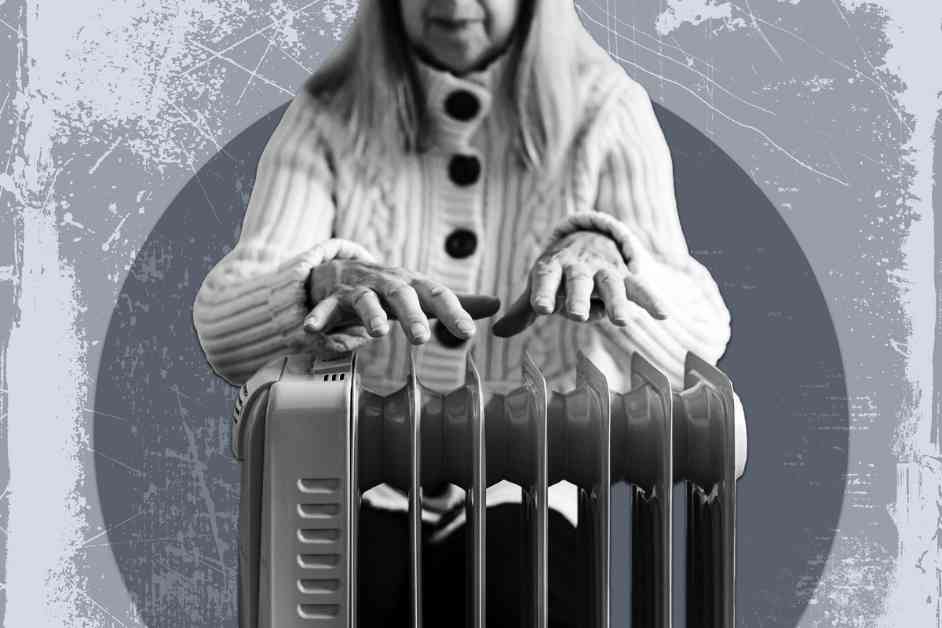Support us to deliver journalism without an agenda. Retired electrical design engineer Paul Taylor is not a big spender. A 74-year-old based near Sheffield, he’s already been cutting down on his outgoings over the past 18 months to deal with rising prices. He describes his food bill as “very clinical” and he’s always searching for the best deal from his energy provider. This winter, he’ll have to be even more economical with his money as he is one of the 10 million pensioners who will miss out on the fuel payment. Chancellor Rachel Reeves decided to cut the winter allowance for the majority of recipients after inheriting what she described as a £22bn black hole in the public finances. Under the new plans, only pensioners on certain benefits will be able to get help with winter fuel. These benefits include universal credit, income support, child tax credit, and pension credit.
However, charity Age UK has identified around 2 million older people who are on low incomes or who have other vulnerabilities, like disability, but who are just above the pension credit threshold. These people will be the most affected by the cuts, they say. Mr. Taylor is just above the cut-off for pension credit and, despite having mobility problems that qualify him for attendance allowance, will not be eligible for fuel payments this winter. He told The Independent: “Even before all this I stopped taking holidays. I normally went abroad a couple of times a year and I have done none of that for the last 18 months. I don’t anticipate that I will be able to do that anymore. “I’m very wary of what I spend generally. My food bill I’m very clinical with, no extravagant things. I tend to shop at the cheaper supermarkets. At the moment, due to my mobility problems, my sons are doing my weekly shop. I give them a list and they do my shopping and bring it to me. I haven’t been out much in the past few weeks.”
Mr. Taylor, who is a widower, has arthritis and had an operation four weeks ago to remove a pin from his ankle that was causing him extreme pain. He’s now got a boot on his ankle, which makes it hard to move around. He said: “I’m in the house basically all the time and the heating is always on now. I try to keep it about 19 degrees. I was previously reasonably comfortable, but now I’m going to be reasonably tight with everything. I don’t think [the cut] will affect me too much, but if things get any worse then it will. As a pensioner goes I think I’m probably just managing with what I’ve got without having to spend my savings, but it’s tight. I’m being careful.”
Sarah, 79, who lives in Hackney, is also above the threshold for pension credit. But pretty much all of her money goes on rent and bills each month. She explained: “My biggest outgoing cost is rent, which is £963 a month. That’s going up in November to £1,020 for a one-bed flat that is very cold. “I’ve got some secondary double glazing but it doesn’t do any good. You can still see the curtains move when the wind blows.” Sarah, who didn’t want to share her last name, has high blood pressure, high cholesterol and is currently suffering from a broken shoulder. “I stay indoors where I can,” she said. “At the moment I’ve got extra costs because if I do want to go out I have to pay for a taxi. Going on the bus makes me nervous as I don’t want to fall over again – that’s how I broke my shoulder. I’m also having food delivered, which is an extra cost. “And I have to have ready-meals because I can’t chop things as normal.”
Referring to the cut to winter fuel payments, she said: “It just doesn’t seem like the right thing to do. I know there are many pensioners who are more well-off, but that doesn’t apply to all of us who aren’t on pension credit. If you’ve got a lot of outgoings, everything is swallowed up.” Sarah gets £994 from her teachers’ pension a month, and £818 from her state pension. The money from her teachers’ pension all goes on her rent and her state pension pays her bills, she explained. She also gets around £100 a month from a small private pension she saved. “I really need some new things in the flat, like heavy curtains, but I can’t really afford any of that. I don’t buy new clothes or anything like that. Even little things like hot water bottles are something I have to think about whether I can afford. “I put blankets around me and have hot water bottles during the day when I’m at home. Then I turn the heating on for a little while at night and I often turn it on for a bit when I have a shower in the morning. “I have it on for three to four hours in the evening. Even that takes me up to £88 a month at the moment, and that’s going to go up with the price cap increase.”












